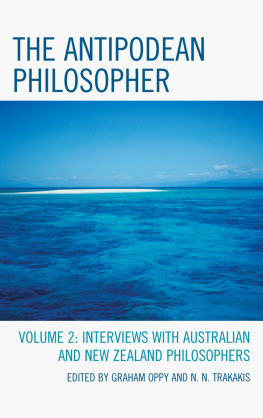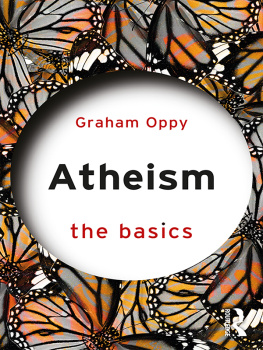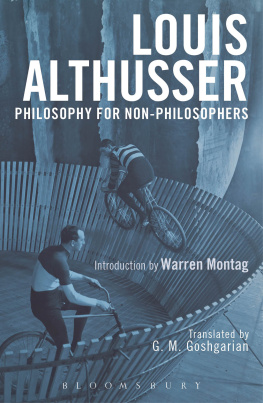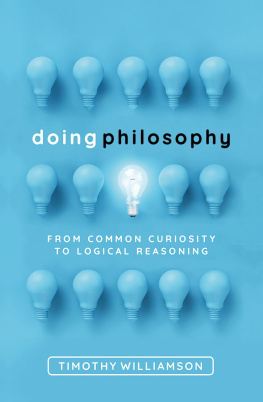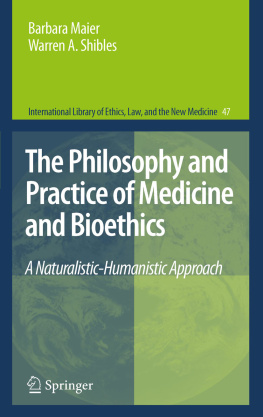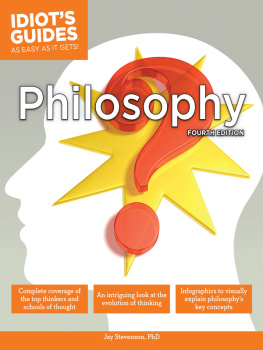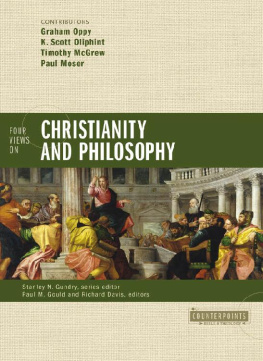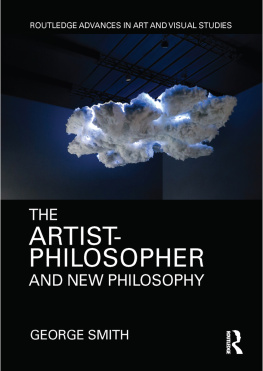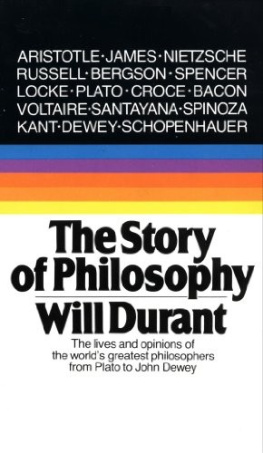Jack Copeland
(JC: Jack Copeland, GO: Graham Oppy)
GO: How did you get into philosophy?
JC: I did physics initially. I specialised in physics at school. I assumed that I would go to university and do physics, which I did. And during my first year at university I discovered philosophy, more or less simultaneously with becoming a bit disenchanted with physics. I suppose Id thought that physics was the way to understand the universe. I went to university, bright-eyed and naive, expecting that from physics. But it didnt deliver, at least not to me. What I got were mathematical models and crude approximations. And then along came philosophy, in the guise of philosophy of science, and Thomas Kuhns book, The Structure of Scientific Revolutions (1962). That was my very first introduction to philosophy. I went to some seminars around that book and got drawn into philosophy tutorials on brilliant topics like Do we have free will? and Where do ethics come from? and Is what we perceive real? and so on. I thought this is the real stuff. Philosophy seemed to offer some real hope of understanding the universe, which was what I was looking for, and which I thought physics hadnt managed to produce. So there I was: I just fell in love with philosophy, and Ive never stopped.
GO: So it wasnt the practical work? I found that the most off-putting thing in physics was spending hours recording sixty-second readouts from a Geiger counter.
JC: No, I liked the practical work. But I was never very good at it. Id do stupid things like wrap my copper electrode around the metal window-opener. Id get bizarre results, and it would take me hours to find out what I was doing wrong, while anyone who knew their way around the laboratory would know instantly. But I enjoyed the practical work, it wasnt that.
GO: The problem, then, was theoretical. Physics didnt deliver the right level of understanding or the right kind of understanding.
JC: Yes, there was a lot of maths, and the question of what the maths meant was left a bit too much up in the air, and the focus was on solving the equations, but I was looking for something beyond that. I can now see that physics and philosophy are quite similar, much more similar than I thought in those days. Its just that philosophers pay even less attention to data than physicists do. But were all in the business of theory generation.
GO: You said that you read Kuhn and started attending philosophy seminars. Who were the philosophers that had the most influence on you? First of all, amongst the ones that you knew at university: were there particular staff members in philosophy who had a significant influence on you?
JC: Later, there were; once I got to Oxford, I was considerably influenced by people who were actually physically presentbut towards the beginning the influences were from paper only. Russell, for example, was always a big influence on me. Popper, too. The idea that science and philosophy were continuous and that philosophers had all these lessons to teach the scientistsI found that tremendously exciting, and I just knew instinctively that it was right. Whatever there might be to be said about the details, the basic continuity of science and philosophy just seemed obvious to me. Berkeley and Ayer were great influences as well. In both cases, I think what appealed to me was the fact that their canvases were so small: in Berkeleys Principles , its just those first 30-odd principles; and Language, Truth and Logic is, of course, also a very slim volume. There was the small canvas and the profoundness of the enquiry. Both books influenced me considerably, and I became a phenomenalist, which at that timeI was 18 or 19I found a very attractive view of the universe, beautifully simple. And then I read George Pauls Is there a Problem about Sense Data? It compares the question of whether sense data exist to the question whether fovea exist, and it was a bouquet of absolutely knock-down arguments against the idea that sense data existor thats how I saw it at the time, anyway. I can remember feeling that this paper came like a physical blow. I felt so upset as soon as I read it, because I could see the truth of what was being argued. And so I had to spend a couple of years thinking my way out of phenomenalism. I do remember feeling kind of dejected at the loss of this beautiful and simple theory.
GO: That was before you went to Oxford, and so this was an on-paper experience?
JC: Yes, definitely an on-paper experience. I think it persisted for a while after I went to Oxford. I turned up at Oxford a defeated phenomenalist: I was still finding my way out of it, but it disappeared fairly soon after that.
GO: You mentioned Russell: what was attractive about Russell?
JC: The clarity. He could be obscure as well, but he could be clear. Also, his gung-ho attitude: we can do this, we can solve this. And, of course, the logic: I found the logic fascinating. Moving out of physics and maths, I found Russellian logic a very welcoming place to move into. It had great familiarity, and there was the real sense in his writing that he was pioneering something new, this whole new branch of mathematics. I found that tremendously attractive. Also, the idea that you could prove things that had actual philosophical meaning: that was thrilling.
GO: So what about later on in your career: who else has influenced what you think?
JC: Well, of course, there was Turing, who I did encounter as an undergraduate.
GO: Of course, when you say encountered, you dont mean that you actually met him.
JC: No: I encountered this great work with Turing written across the top. It was the 1950 Mind paperComputing Machinery and Intelligenceand we studied it in something like a series of third-year seminars (I cant remember exactly). I can remember being absolutely blown away by this paper. I knew nothing about Turing; Id never heard of Artificial Intelligence (AI); but I was very impressed with mechanism, because Descartes was a great influence on me. Apart from Descartes, I didnt really know much at all about mechanism, or its history, or its prospects; and suddenly there was Turing talking about thinking computers. That had a big impact. I never did anything with it at the time, but it lodged in my mind very strongly, and then at Oxford there were various people who built upon that initial encounter. There was Robin Gandy, who was one of Turings studentsprobably his best friend, actuallyand who taught me about Turing machines, recursive function theory, and a whole lot of other stuff. There was Simon Blackburn, who was my supervisor from early on: he taught me a huge amount about philosophy, but perhaps most of all about claritythat wonderful Blackburn clarity. He taught by example. And there was Dana Scott, who was my supervisor in mathematical logic from my second year, from whom I learnt a great abundance of things.
GO: By any chance, did you find out about Gdels ontological argument from Dana Scott? He was the person who circulated Gdels argument in note form, years before the Gdel Nachlass was published and Gdels own notes came out.
JC: No, I didnt. Im not surprised to hear it though, because every issue in logic can be traced back to some Xeroxed unpublished notes that Dana Scott circulated privately in 1968 or thereabouts. Scott taught me semantics, of course: Semantics first! was the slogan in those days. Scott introduced me to the power of semantics. I was very interested in modal logic and relevance logic; Anderson and Belnap were a great influence on me. Dana Scott pointed me in the direction of Anderson and Belnap, and also in the direction of George Hughes and Max Cresswell, neither of whom I knew at that time, although both of whom I met subsequently. But Simon Blackburn introduced me to their famous book on modal logic ( An Introduction to Modal Logic , 1968), and he said something like: Its actually possible to teach modal logic now that these two New Zealanders have brought this book out, and you can see what he means. Before that, there were only relatively unapproachable papers. Then, suddenly, there was a book that you could actually give to students. I read it from cover to cover almost immediately, not bothering about all of the details, but just picking up the gist. I found it incredibly exciting. Initially I worked on axiomatic modal logic and, somehow, the chapters on semantics in Hughes and Cresswell passed me by; they just didnt engage me at the time. Then I can remember bringing Dana Scott some huge screed about axiomatic modal logic and Gentzen systems, and he gave it a cursory glance and said: Why dont you do some semantics? Go and read Kripke! So I did, and I was captivated by Kripkes early papers on semantics, which I think are some of the most important work thats ever been done in philosophy. Kripke I met years later, but not at the time.

